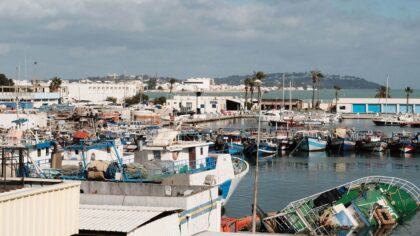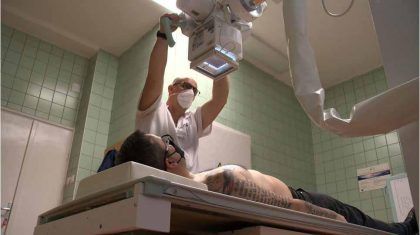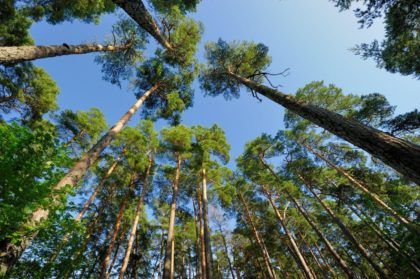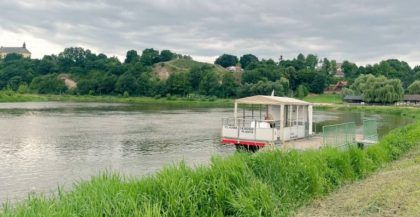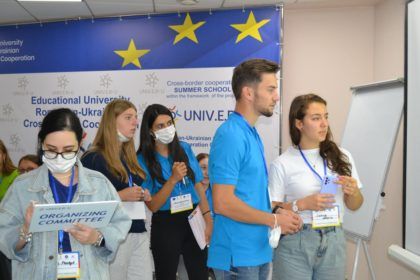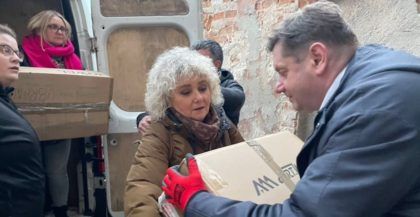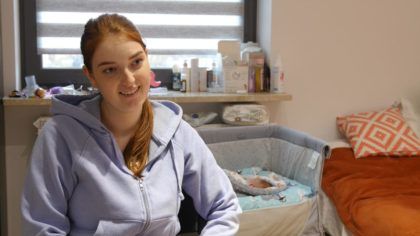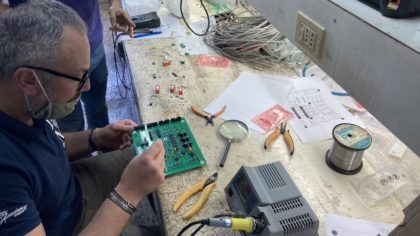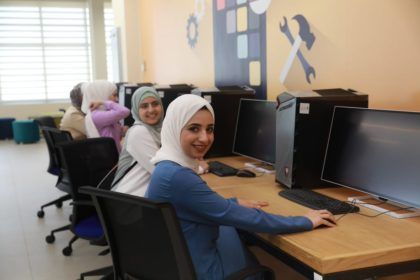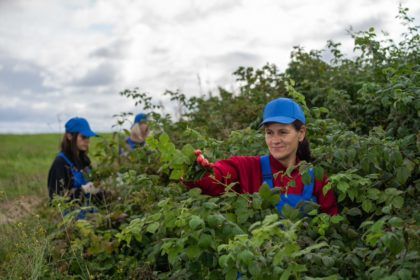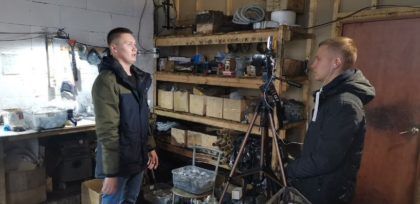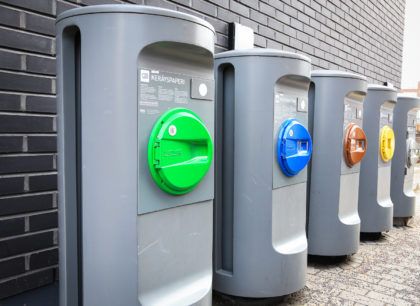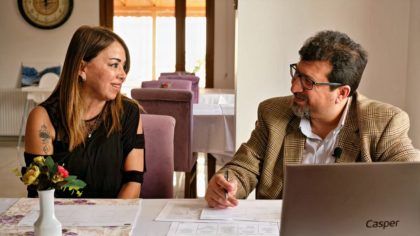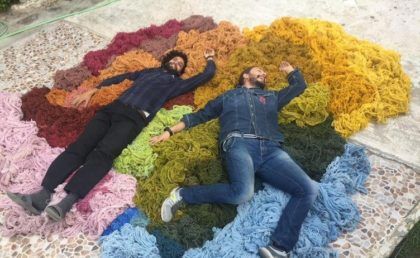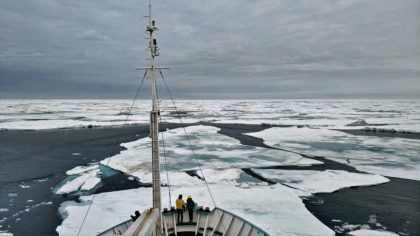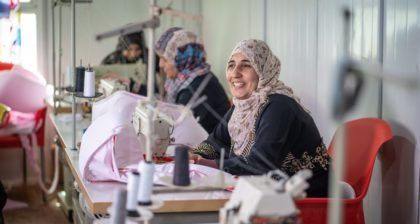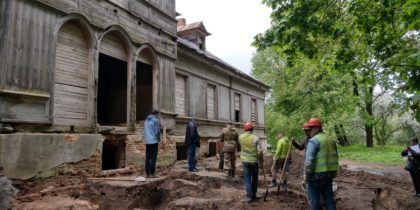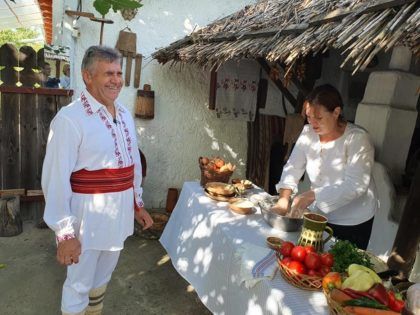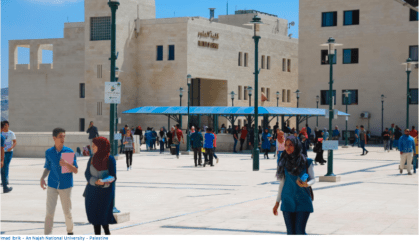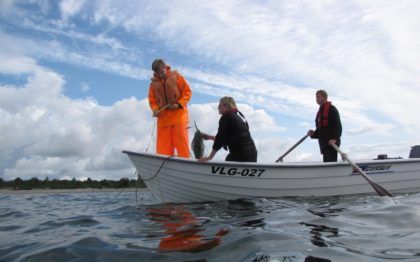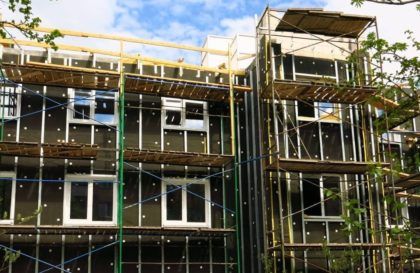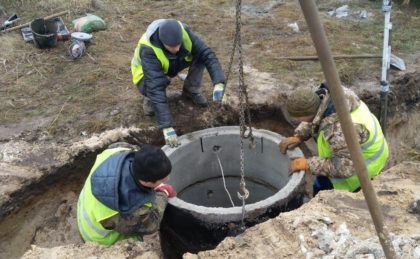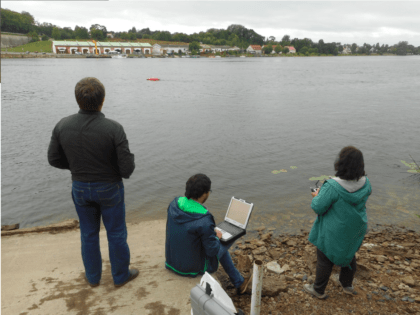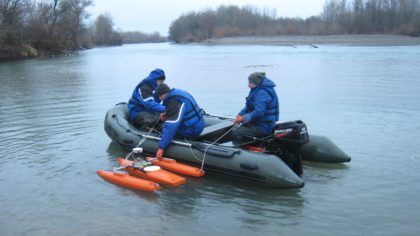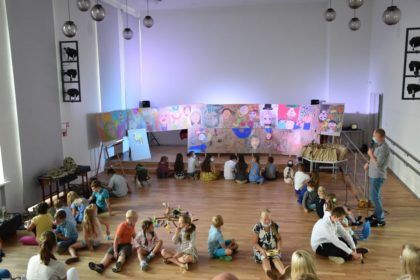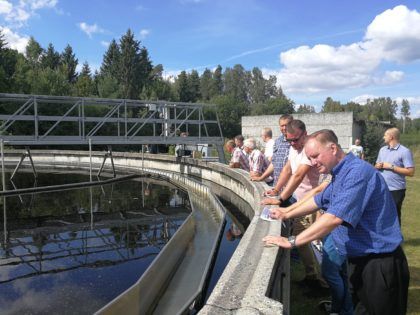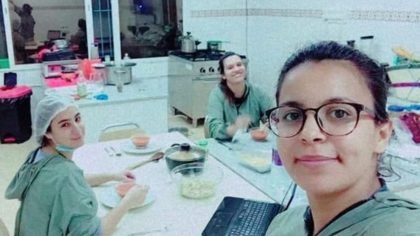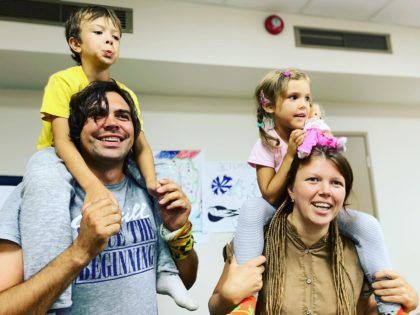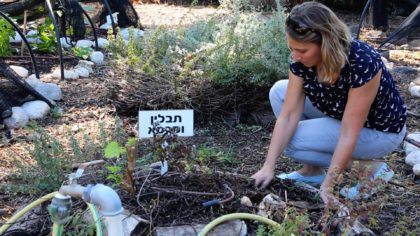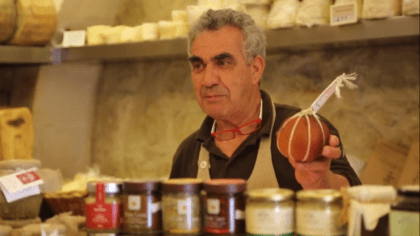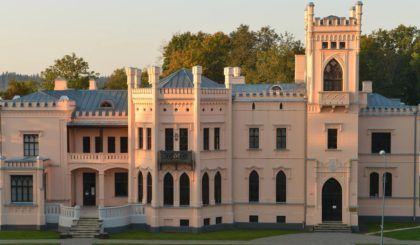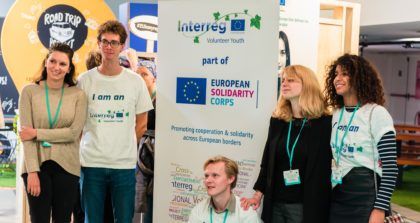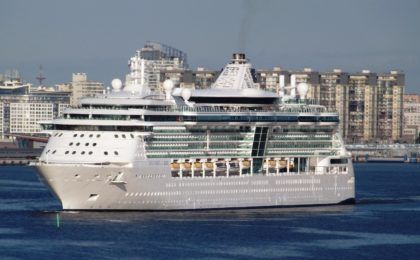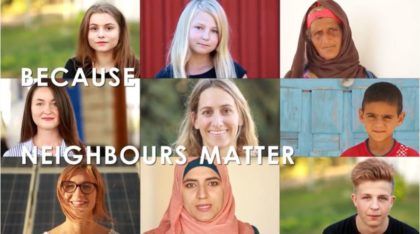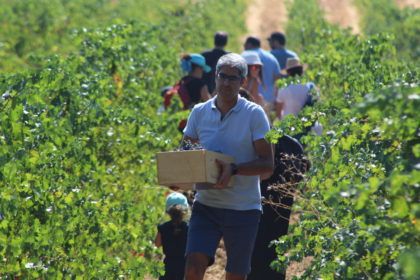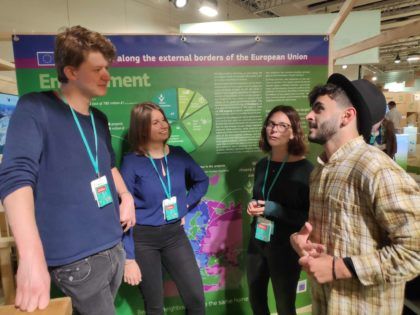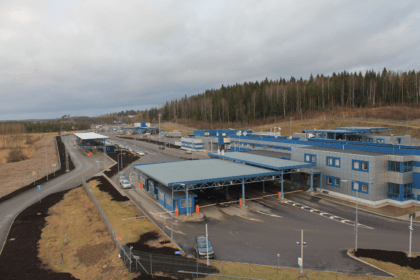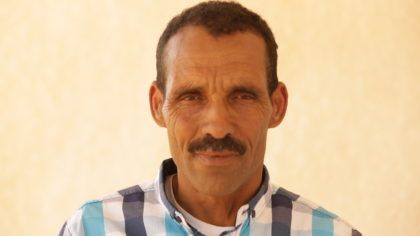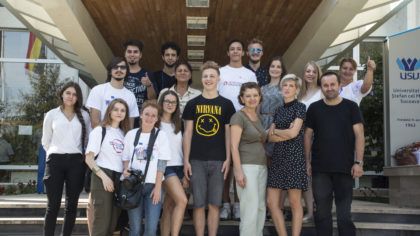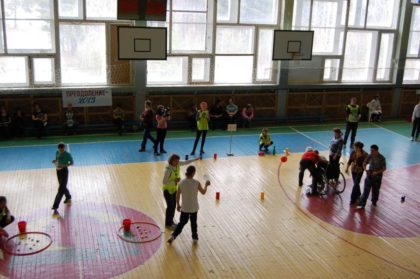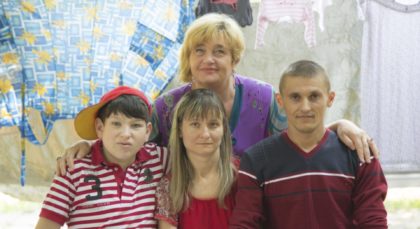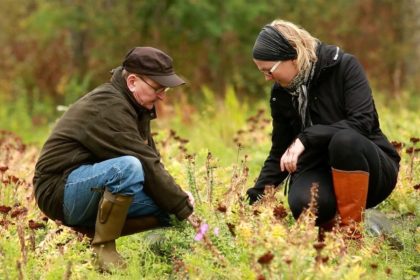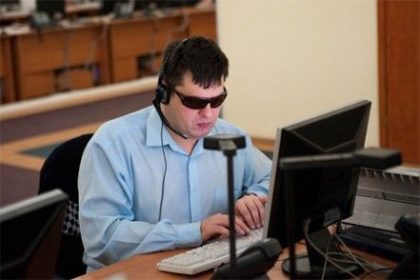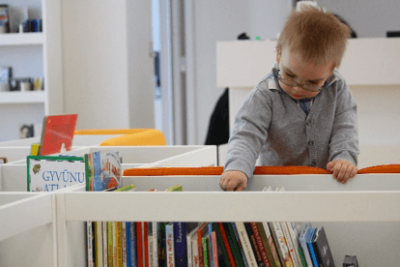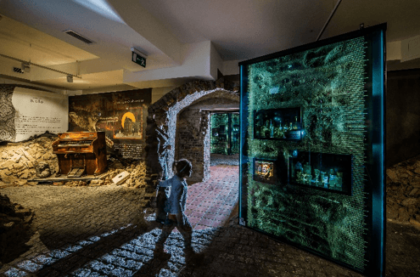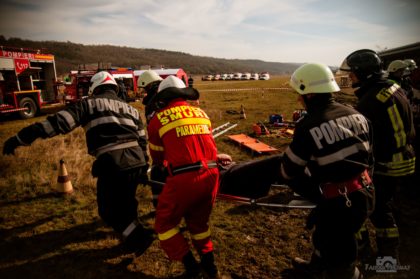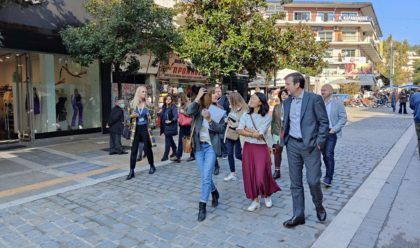
The Road Show stops with the Neighborhood youth
Eyes on the youth! On 7 and 8 November the “Interreg Youth Road Show” headed to the Southeast Mediterranean, bringing around 30 representatives of the European Commission and the European Parliament to meet the youth of Thessaloniki and Serres (Greece). Four Interreg programmes took a chance to showcase their youth project in vocational training, employability, entrepreneurship, and environmental education. The trip’s itinerary included – for the first time! – an ENI CBC project “ZeroWasteBSB”. Its partners from Turkey, Bulgaria, Ukraine and Greece focus on zero waste practices and awareness-raising activities to minimize marine litter in the Black Sea Basin. The Greek partner – ANTIGONE – carried out a cycle of educational activities in several schools in Thessaloniki, and during the “Interreg Youth Road Show” we were able to appreciate the results of their work with youth.
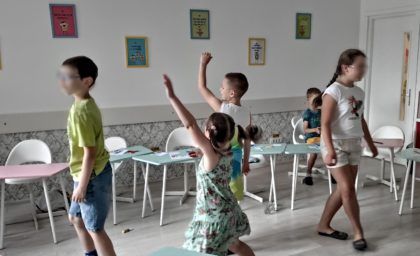
A place to offer kids a new beginning
SUCEAVA – Back to the future. As other projects overturned by the war, also SMART4YOUTH has resumed normal activities, and on 21-23 September a “film festival” will feature the videos produced by Romanian and Ukrainian youngsters after attending project’s workshops. At the same time, partners don’t let go of the refugees, and keep running the “mothers support group”, whilst their kids are busy with languages and arts at the “clever children” centre: altogether, about 300 people are still benefitting from this support in the region. It is definitely a busy time for the cooperation between Romania and Ukraine, whose reality is heartedly described by Vasile Gafiuc, manager of SMART4YOUTH and president of the Association of Community Development Consultants (ACDC).
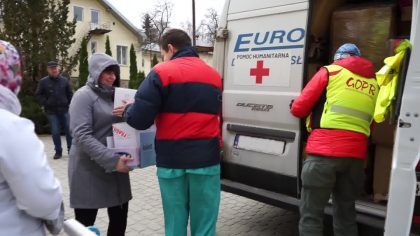
Holding on to a partnership
Regular work plans have been blown up: the war in Ukraine has overturned the rail of cross-border cooperation in the East. But how have projects reacted? What have they decided to do, and how? This is the first of a series of reportages – including videos, pictures, and interviews – on the response of the ENI CBC community to the crisis unleashed by the Russian assault on Ukraine. Because for one neighbour attacking another, there is a third one opening the border to save the fleeing women and children. And we start precisely in Poland with SOSRescue, a project originally planned to train mountain rescuers, and suddenly thrown into the emergency by supporting a population on the run.
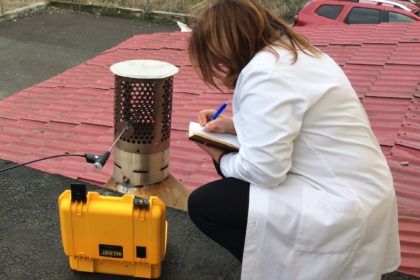
From waste to energy, a burning issue
Controlled burning can reduce huge volumes of garbage into – literally – a handful of ashes. Waste combustion is often preferred as an alternative to waste landfilling. But what is most important, it allows to recover energy from the burning process – either in the form of electricity and/or heat – that can further be used in homes and businesses. The EnyMSW project has worked on the development of this idea for the border regions of Romania, Slovakia and Ukraine.
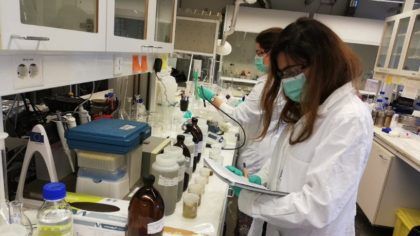
Cleaning tons of wastewater with “OneDrop”
Traditional water treatment systems are usually costly and sometimes not very safe for the environment: they use potentially toxic elements such as chlorine, or expensive techniques like ultra-violet light. The OneDrop project is developing a new water purification system based on a key element that is cheaper and safer: sodium ferrate. This is a very active oxidizing agent, capable of cleaning huge amounts of water even if injected in very low quantity. In addition, the project is making this purification plant mobile, potentially able to reach everywhere. The OneDrop project – implemented in the framework of the South-East Finland Russia CBC programme – is already catching media attention: it promises to be a real revolution.
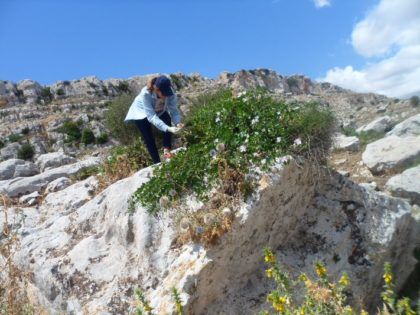
What about an asparagus hand cream?
Roses, oregano, asparagus and capers…these are indigenous species in the Sicilian and Tunisian territories, they grow naturally in marginal lands, they do not require chemical inputs and do not demand much water. In addition, they have lots of nutritional and medicinal properties. Why then not grow them more profitably and sustainably? What if we transformed them and created other products? Creams, essential oils, perfumes… This is exactly what the ESPAS project is pursuing. Funded by the Italy-Tunisia ENI CBC programme, this partnership wants to revalorise autochthonous species in Sicily and Tunisia, to diversify their uses and to provide farmers and enterprises with more business opportunities. But how? Keep reading!
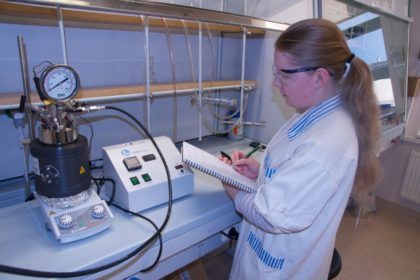
From fossil to wood-based plastic
From fossil to bio-based plastic to reduce carbon dioxide emission, ensure sustainable sources and increase recycling. This change is crucial for ending plastic waste and heading towards circular economy. It is a joint effort – regardless of borders and ideologies – where every single action counts. The BioStyrene project, funded by the Estonia-Russia CBC programme, has its own innovative recipe for contributing to the global fight against fossil-based plastics…
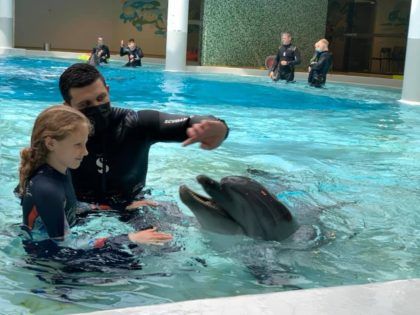
Breaking barriers in children rehabilitation
A holistic approach and an early intervention can change a child’s future. Children with psychomotor disorders, psychiatric or behavioural issues often show a complex of symptoms that need to be addressed as soon as possible and from different points of view. However, it is not easy. Parents are afraid of the diagnosis; they do not recognise some of the symptoms as relevant or they get lost in the vast amount of information. As a result, these children are often left out of the system and then it may be too late. That’s what the BREAK project is changing in the Lithuania-Russia cross-border region: breaking the barriers in children rehabilitation, creating a safe place where they can be orienteered and treated from different perspectives, where they benefit from early diagnosis and intervention. In a word, trying to offer them a better future.
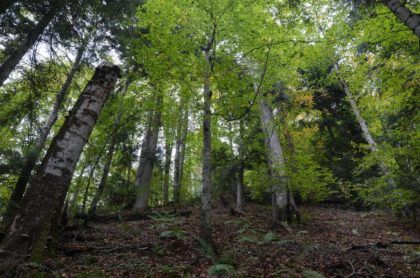
Keep deadwood in forests: it’s friend of biodiversity and resilience
Deadwood may seem damp, sterile, an unhygienic source of infection, something to be removed. However, the reality could not be more different. Decaying wood logs, dead and old trees host multiple microorganisms, they help the forest to better resist diseases, they increase its resilience to climate change. They also capture carbon emissions and conserve biodiversity. For these reasons, keeping the deadwood in the forest can bring multiple benefits. The RESFOR project, an initiative co-funded by the Romania-Ukraine ENI CBC programme, is raising knowledge and promoting good practices in “deadwood management”. A novel concept, very little explored in the forestry sector of the cross-border region, but yet very important for the resilience of the forests, some of which represent one of the last old-growth forest reserves in Europe, and have been included as such in the World Heritage List of UNESCO.
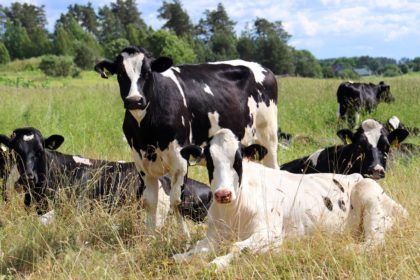
Processed cattle manure is a good deal for the environment
Did you know that cattle manure is not the same as organic fertilizer? To become a nutrient substance for plants, it must be correctly processed, stored and spread. Otherwise, it may negatively impact the environment – air, soil and water. Excessive amounts of manure produced by large-scale livestock farms in the Leningrad region (Russia) bear environmental risks for the eco-systems in the Baltic Sea region. The ECOAGRAS project introduces best available technologies for handling organic cattle waste, with the aim to reduce environmental impact while securing the economic activity.
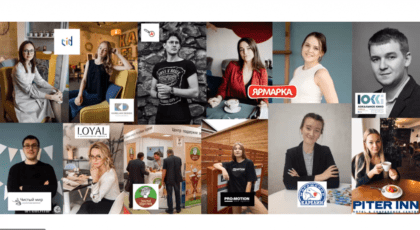
Bridging the gap between students and businesses
What can university students do to contribute to your business development? This is what Peter Fischer, BRIDGE project manager, asked companies and small businesses in the neighbourhood, and the answer was clear: students can use their knowledge to help us resolve small problems, and we can provide them with real working life experiences. This is how the initiative BRIDGE came up: a cross-border network of five universities where students and businesses cooperate with a two-fold objective. On one hand, increasing the hands-on skills of the university graduates, and on the other, helping small businesses to further develop. BRIDGE is a project funded by Kolarctic CBC programme.
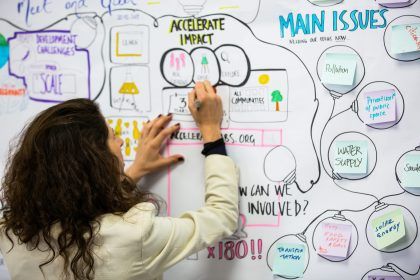
The green economy potential to engage marginalised youth
In recent years, the transition from education to work has become more prolonged and unpredictable. In fact, due to different and successive crises, many young people find themselves neither in employment nor in education and training (NEET). And youth with little or no education is highly marginalised, and increasingly far from jobs. At the same time, there is still an unexploited potential in green economy: environment protection can provide the base for new work opportunities. Combining these two fields – the social and the environmental – is the purpose of the RESMYLE project, which aims at the socio-professional integration of young people into the job market.
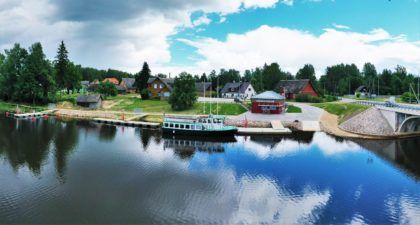
When a lake builds communities’ life
Lake Peipsi is a unique water body. It is the biggest transboundary lake in Europe shared by Estonia and Russia. For more than a decade this natural resource has been a focal point for any cross-border initiative between the two countries. Can one single CBC project improve lake water quality, boost local businesses, empower neighbouring communities and even set milestones for re-establishing water connections between two countries? Yes, it can! Meet the project “Common Peipsi” co-funded by Estonia-Russia CBC programme.
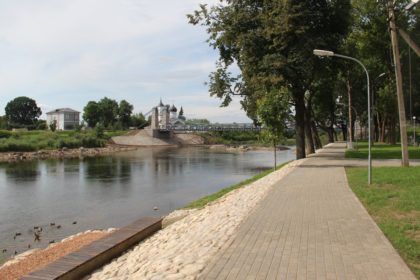
Turning city rivers into sunbathing beaches
Riversides cleaned, with lighting system, bins, benches installed, and even a place to sunbathe. “When a place is attractive, it becomes like glue, it sticks you to the territory and that is what we want to do, attract visitors and glue them to our cities”. Sticky Urban Areas is the name and the main idea behind the project funded by Latvia-Russia CBC programme, with the objective to transform natural resources into attractive areas for inhabitants and visitors. Two municipal administrations – Rēzekne City Council in Latvia (LV) and Ostrov District Administration in Russia (RU) – are very concerned about the situation in their cities. Rēzekne is far away from the capital, and not being a seaside city does not help; and Ostrov – located in the eastern part of a huge country like Russia – is often forgotten when it comes to hauling financial resources and attracting businesses. Yet, both places have immense potential, and an untapped opportunity for businesses to thrive and to get tourists moving: their natural resources, especially, their rivers.
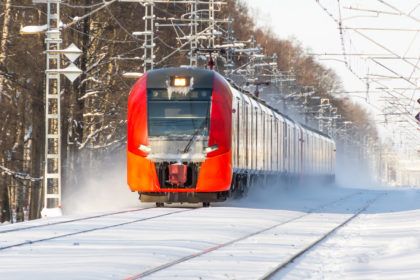
Sensor technologies to boost rail traffic through the Arctic
How can longer, faster and more frequent trains cross some Arctic regions where the ground was frozen all year long, and now is melting? How can increasing levels of safe railway transport be guaranteed, when temperatures can vary from +35° to -40° and weather conditions are at the harshest? An ENI CBC project – Arinka II – is dealing with this challenge, working to make the Kolarctic railway network more reliable and effective. And new sensor technologies are at the forefront of the effort.
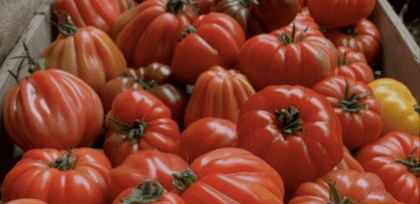
E-commerce: Bringing Local Farmers Right to your Table
White brined cheese from Bulgaria, berries from the Republic of Moldova, Greek virgin olive oil, tomatoes from Romania, Turkish strawberries and honey from Ukraine. What do these products have in common? Are they the main ingredients to a crazy recipe? Not at all! These are all special traditional agricultural products grown by local farmers all around the Black Sea basin. Apart from being delicious, they have immense potential for regional branding and international trading. This is exactly what AGRITRADENET is about: supporting and empowering local farmers so that they become part of a business network and can trade across borders with top-quality products. This initiative is funded under the ENI CBC Black Sea Basin programme.
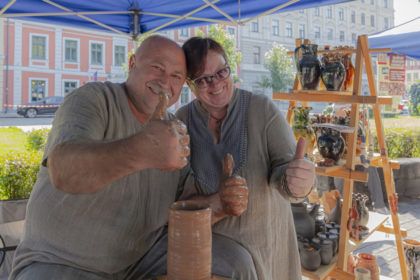
Crafts & cooperation: opportunities for growth
Pottery, wood carving, smithcraft, loom weaving, leathercraft… This is far not the full list of skills mastered by the craftsmen from the border regions of Latvia and Russia. They create amazing, unique hand-made products which, however, do not always reach potential buyers. How can an EU-funded project help artisans to turn their passion into a successful business? And can old crafts boost tourism potential of the cross-border area? The “Craftmanship without borders” project, co-funded by Latvia-Russia CBC programme, has got the answers.
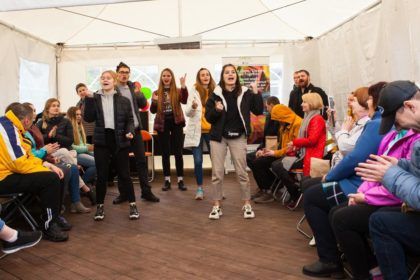
CULTURE OPEN – Speaking the unique language of culture
“Culture is probably the best way to integrate migrants and people with disabilities in our cities. There is no need to speak. People usually dance and sing about the same things. Culture is the best way to reach someone’s heart and build trust”. Migrants and people with disabilities are two quite different types of groups. They have different needs and concerns. However, they often face the same challenges: the feeling of isolation, feeling unheard or not integrated in society. Culture Open is a project, financed under ENI CBC Karelia programme, that aims at engaging socially vulnerable groups in the cities of Petrozavodsk (RU) and Joensuu (FI) by making them feel the protagonists in the cultural life of the cities.
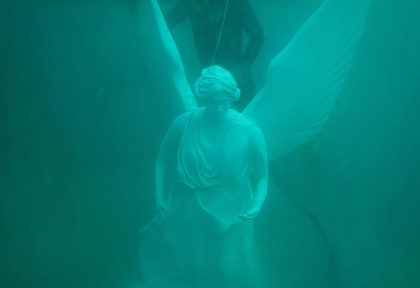
Flippers and diving masks to enjoy the underwater museum of the Black Sea
Vessels, buildings, statues, artefacts, sites, even human remains: this is all “underwater cultural heritage”, defined by UNESCO as human traces with cultural, historical or archaeological character, that have been under water for at least 100 years. Definitely, a heritage worth preserving and object of interest for the most curious minds. The ENI CBC TREASURE project has put the underwater remains of the Black Sea Basin at the centre of its efforts. The initiative – financed under the ENI CBC Black Sea Basin programme – focuses on fascinating sub-aquatic archaeological rests, and offers a unique experience as an alternative to traditional tourism.
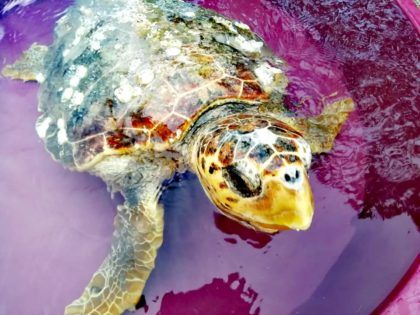
Whatever you throw into the sea will come back to you
More than 62 million of debris are estimated to be floating in the Mediterranean Sea – one of the six areas most affected by marine litter in the world. Plastic accounts for a large part of all manmade debris. Marine litter not only endangers numerous aquatic organisms – it threatens to finish up on our plates through the food chain. An EU-funded project COMMON is taking actions in the five pilot areas of the Mediterranean – in Italy, Tunisia and Lebanon – to combat the common challenge.
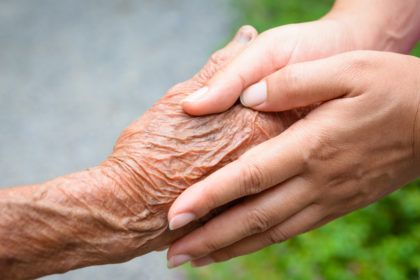
TEC-MED: No elderly alone
In the Mediterranean, elderly people have been particularly hit by COVID-19. The media attention has been much riveted to them but mostly as a risk group on a medical level. Isolated and lonely more than ever due to social distancing and confinement, in this unprecedented period they eminently need adequate care, both social and psychological. Emotional support, social involvement, scientific research: tackling the pandemic, an EU-funded project TEC-MED develops solutions to find some relief for older people.
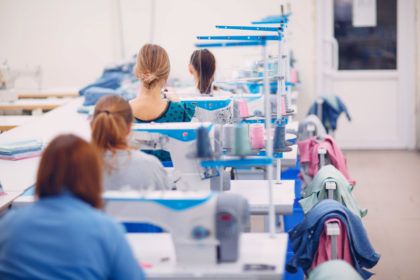
A database to match producers and users
Do you produce fabrics for health use? Are you looking for masks, protective gloves, medical aprons? As the COVID-19 pandemic is still ravaging, there is a relentless worldwide demand of supplies: if you are a textile or a manufacturing company, here is a database that could help you out to find the right destination for your products. A “who-is-doing-what” catalogue has been created to put in touch those who offer the production of an item or a service, with those who are looking for it.
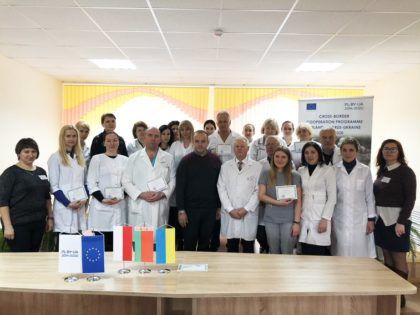
Struggling together against the pandemic
Viruses know no borders, and so does the health struggle: thanks to an EU supported project, emergency medical services are already functioning in the cross-border areas linking Poland, Belarus and Ukraine. Ambulances and respirators are available in the hospitals to help doctors fight against the COVID-19 pandemic: the equipment delivered through the RESCUE project is serving its purpose to help border communities to face emergencies across the European frontier.
